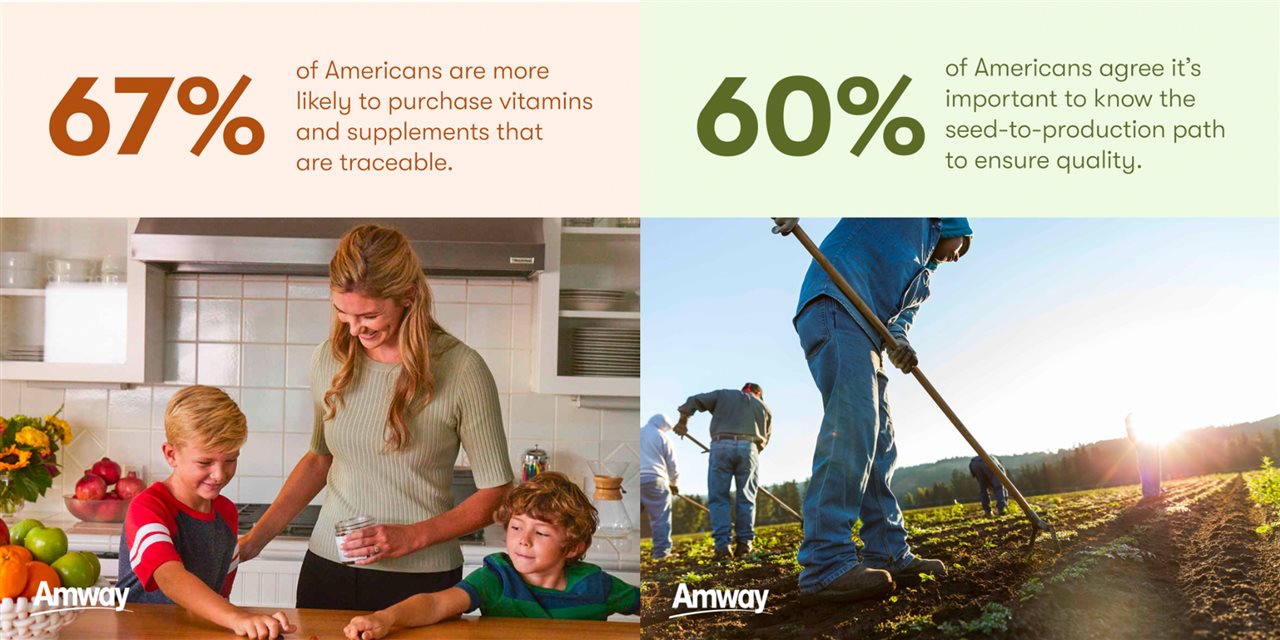How to know if you can trust your supplement: 4 things to look for
(BPT) - A multivitamin. Calcium. Vitamin C. Chances are, you've taken at least one of these today, along with three-quarters of American adults.
There are hundreds of brands and thousands of products to choose from. So, how do you choose a quality vitamin, mineral or botanical supplement, and how do you know whether it will do what you hope?
You may be shocked to learn that the FDA does not approve dietary supplements that are on your store shelf. In fact, according to the new 'Habits and Healthspan' survey, sponsored by Amway, 47% of U.S. adults ages 18 to 70 mistakenly believe their supplements are FDA-approved.
The good news? Thanks to the internet, it's easier than ever to research products and there are four easy ways to ensure you are putting a high-quality product into your body.
1. Do you recognize the ingredients?
- 87% of Americans want to know exactly what they're putting into their bodies.
Although manufacturers are legally required to use safe ingredients, the FDA does not approve dietary supplements. The bottom line? It's up to consumers to research and know what they're putting in their bodies. This is where ingredient traceability - the process of tracing the origin and journey of ingredients through the supply chain to ensure safety, quality and transparency - comes in.
- 67% are more likely to purchase dietary supplements that are traceable from the seed to the shelf.

2. Do you understand where the ingredients are grown?
- Over half (60%) of consumers agree it's important to know the seed-to-production path to ensure quality.
Consumers are looking for products they can trust. Thanks to the internet, it's easier than ever to dig into product ingredients and see the seed-to-supplement pathway. This has led to consumer demand for product transparency where companies are being pushed to be more open not just about their ingredients, but their production practices as well. This extends beyond supplements, too:
- 87% of consumers agree that clean and sustainably made skincare and cosmetic products are superior.
3. Is the company you're purchasing from environmentally conscious?
In addition to what's in the products they consume, there is a growing concern amongst Americans about how products are made and what impact is made on the environment.
- 78% say they're concerned about how pollution and chemicals can affect their health, with 29% 'very' concerned.
With that, consumers are opting for products that are both good for their health and wellbeing as well as the planet.
One way companies can be more environmentally conscious is by practicing regenerative agriculture, using farming methods that conserve water and protect the soil. Companies like Amway, which owns and operates nearly 6,000 acres of certified organic farmland in the U.S., take pride in:
- Avoiding the use of synthetic fertilizers and pesticides
- Saving energy and water
4. Does the product have a certification or seal of approval?
Having an objective, third-party assurance that the product you are using meets quality standards is another way to ensure reliability.
Only 6% of consumers do not prefer using a sunscreen that is certified with a third-party assurance. When it comes to personal care products like sunscreen, you can check the packaging to note which ones have certifications such as the Seal of Recommendation from the Skin Care Foundation, which provides assurance that the product meets a third-party's criteria for safe and effective protection.
Setting the bar for quality, sustainability and integrity
Ultimately, consumers are driving the shift toward higher quality, more sustainable products. The expectation falls on companies to change their ways and meet expectations. Americans want products that not only work but also align with their sustainability values. The brands that rise to the occasion and meet these demands stand to create deeper, more loyal relationships with their customers.
As a health and well-being industry leader, Amway is working to set the bar high for quality, sustainability and product integrity. By forging partnerships down its supply chain and making strong commitments to transparency, Amway is among many other companies leading the charge in corporate responsibility and environmental stewardship.
Source: BrandPoint



















